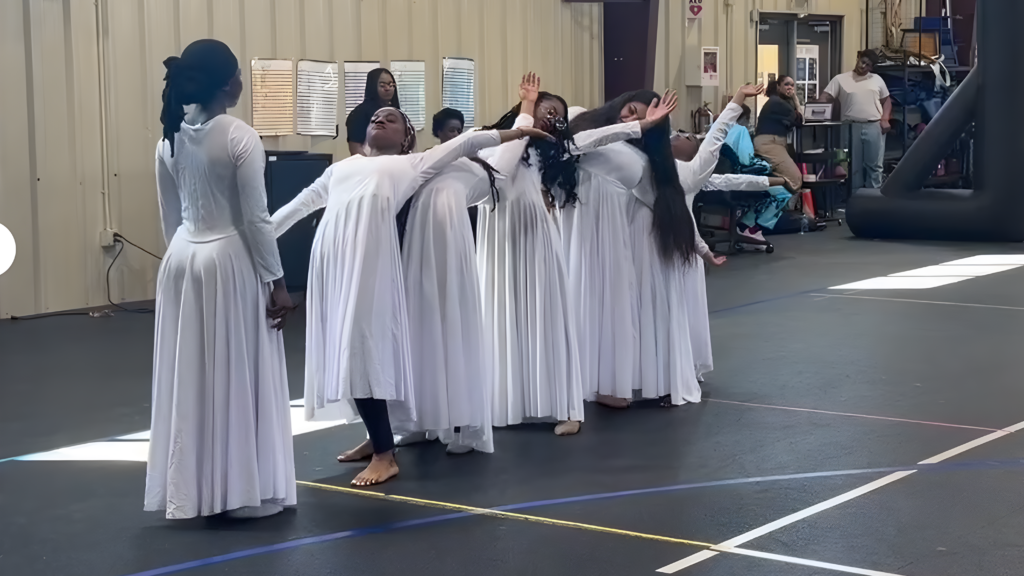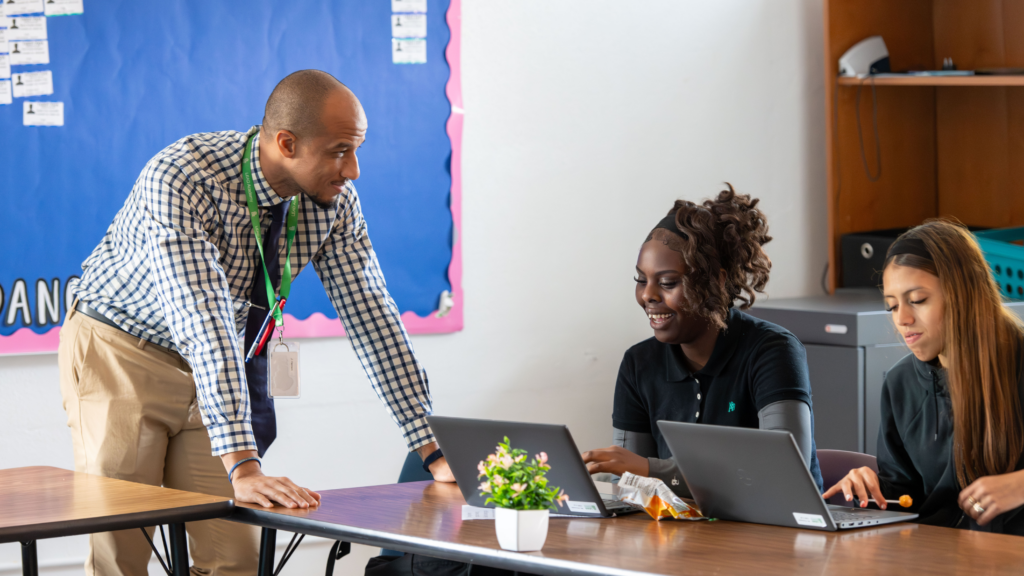Hispanic Heritage Month Q&A with Jennifer Salamanca
Celebrating Hispanic Heritage Month at LEAD Public Schools means honoring the  culture and heritage of many of our students and staff. Every year from September 15 to October 15, we recognize the contributions and influence of Hispanic Americans through lessons, activities, events and spotlights.
culture and heritage of many of our students and staff. Every year from September 15 to October 15, we recognize the contributions and influence of Hispanic Americans through lessons, activities, events and spotlights.
We’re wrapping up Hispanic Heritage Month with a Q&A from Jennifer Salamanca, Family and Community Engagement Coordinator at LEAD Cameron.
Q: What does Hispanic Heritage Month mean to you personally?
Jennifer: For me, it’s a time of reflection. To recognize the accomplishments of those who came before me and made it possible for me to do things that weren’t possible once upon a time (e.g. The Equal Educational Opportunities Act of 1974). To honor and celebrate the sacrifices that my family made in leaving behind everything they once knew, so that I have a better chance in life. Being proud and celebrating my hyphenated identity as a Mexican-American.
Q: What does Hispanic Heritage Month mean to the families and students we serve?
Jennifer: For many of our students, it is a time to celebrate and embrace their hyphenated identity. Not only does it embrace their families’ heritage and culture but the culture of being Hispanic-American. For our families, it is a reminder that our culture and traditions have not been lost.
Q: How does LEAD make sure Hispanic families feel seen and heard?
Jennifer: I believe that LEAD does a great job of making sure our campuses reflect the community we serve. For example, at LEAD Cameron a parent can have a direct conversation with our front office about their student and their welfare without the student translating for their parent. We are able to provide the tools for parents to have the power to be active parents in their children’s education.
Q: LEAD Cameron is particularly diverse. Can you speak to the different Hispanic nationalities we have at Cameron and how they are unique?
Jennifer: LEAD Cameron is very lucky to have a diverse group of Hispanic nationalities. Many of our Hispanic students have a heritage background from Honduras, El Salvador, Guatemala, Mexico, the Dominican Republic, Nicaragua, and Venezuela. Our Central American population has students who are indigenous (Mayan) and still speak indigenous languages like Achi. It’s a culture and language that is very much alive.
Q: Why is it important that we all recognize and celebrate Hispanic and all cultures?
Jennifer: It’s important to recognize the accomplishments of those who share a similar background. It can make our goals and dreams appear more feasible, and the barriers that seem impenetrable aren’t as intimidating. By celebrating our differences we are better able to understand other’s perspectives and broaden our world.




